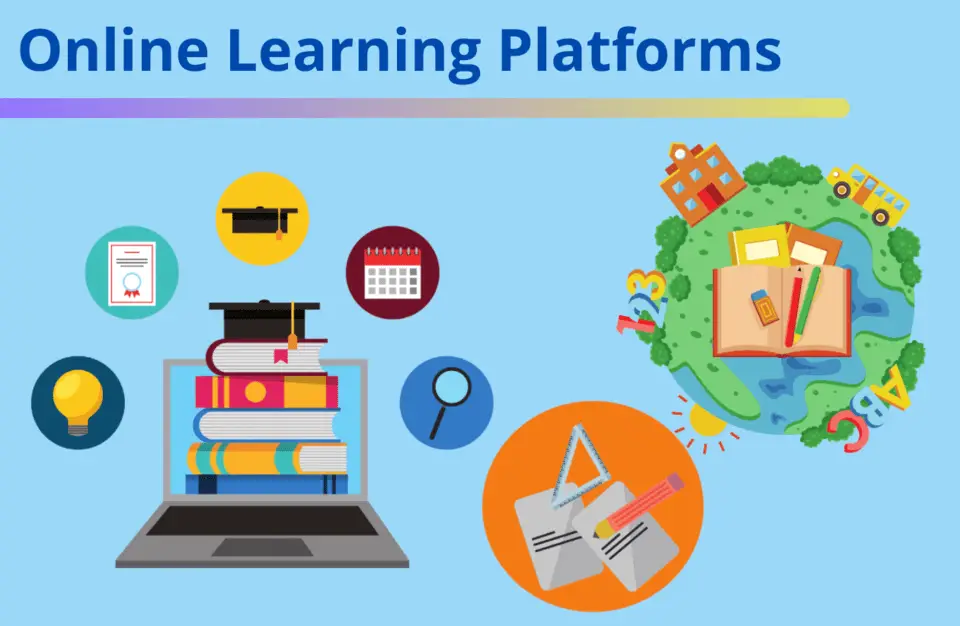Looking to enhance your skills or gain new knowledge? Online learning platforms may be the perfect solution for you. In this article, we’ll introduce you to the world of online learning platforms and explore the different types available. We’ll also weigh the advantages and disadvantages of using these platforms and provide tips on how to choose the right one for your needs. Whether you’re looking to advance your career or simply learn something new, this comprehensive guide will help you navigate the world of online learning platforms with ease.

Play Video
Table of Contents
Introduction to Online Learning Platforms
Online learning platforms have become increasingly popular in recent years, especially with the rise of remote work and distance education. These platforms offer a wide range of courses and programs that can be accessed from anywhere in the world, at any time. Whether you’re looking to learn a new skill, advance your career, or simply explore a new subject, online learning platforms provide a convenient and flexible way to do so.
But what exactly are online learning platforms? Essentially, they are websites or applications that offer educational content, ranging from short courses to full degree programs. Some platforms are designed for specific industries or subjects, while others offer a more general selection of courses. They may include features such as video lectures, interactive quizzes, discussion forums, and assignments.
While online learning platforms can be a great way to expand your knowledge and skills, they also come with their own set of advantages and disadvantages. It’s important to understand these before deciding whether an online learning platform is right for you. Additionally, with so many options available, it can be overwhelming to choose the best platform for your needs. In the following sections, we’ll explore the different types of online learning platforms, their pros and cons, and how to choose the right one for you.
Types of Online Learning Platforms
Online learning platforms come in different types, each with its own unique features and characteristics. The most common types of online learning platforms include Massive Open Online Courses (MOOCs), Learning Management Systems (LMS), and Online Tutoring Platforms.
MOOCs are free online courses that are open to anyone who wants to learn about a particular subject. These courses are usually offered by universities or educational institutions and cover a wide range of topics. MOOCs are self-paced, meaning that learners can take the course at their own pace and on their own schedule.
LMS, on the other hand, are online platforms that are used by educational institutions to manage and deliver online courses. LMS platforms provide a centralized location for course materials, assignments, and assessments. They also allow instructors to track student progress and provide feedback.
Online tutoring platforms are designed to connect students with tutors who can provide one-on-one instruction and support. These platforms offer a variety of subjects and levels, from elementary school to college-level courses. They may also offer additional resources such as study materials and practice exercises.
Each type of online learning platform has its own advantages and disadvantages, depending on the learner’s needs and preferences. It is important to consider these factors when choosing the right platform for your learning goals.
Advantages and Disadvantages of Online Learning Platforms
Online learning platforms have become increasingly popular in recent years due to their convenience and accessibility. However, like any other educational tool, they come with their own set of advantages and disadvantages.
One of the main advantages of online learning platforms is flexibility. Students can access course materials and complete assignments at their own pace, which is particularly beneficial for those who have work or family commitments. Additionally, online learning platforms often offer a wide range of courses and programs, allowing students to choose from a variety of subjects and levels.
Another advantage of online learning platforms is cost-effectiveness. In many cases, online courses are less expensive than traditional classroom-based courses, making them more accessible to a wider range of learners. Online learning platforms also eliminate the need for commuting and other associated costs, further reducing the overall cost of education.
However, there are also some disadvantages to online learning platforms. One of the main concerns is the lack of face-to-face interaction with instructors and peers. This can make it difficult for students to ask questions and receive feedback, which can impact their learning experience. Additionally, online learning platforms require a certain level of self-discipline and motivation, as students must manage their own time and stay on track with coursework.
Overall, online learning platforms offer a convenient and cost-effective way to learn new skills and advance one’s education. However, it’s important to carefully consider the advantages and disadvantages before choosing an online learning platform that best suits your needs and learning style.
Choosing the Right Online Learning Platform for You
When it comes to choosing the right online learning platform for you, there are several factors to consider. First and foremost, you should determine your learning goals and objectives. What skills or knowledge do you want to acquire? Are you looking for a formal degree program or just seeking to expand your knowledge in a particular area?

Next, consider the format of the courses offered by the platform. Do they offer live classes or pre-recorded lectures? Is there an opportunity for interaction with instructors and other students? Some platforms may also offer self-paced courses that allow you to learn at your own pace.
Another important factor to consider is the cost of the platform. While some platforms offer free courses, others may require a subscription or payment per course. It’s important to weigh the cost against the value you will receive from the courses.
You should also research the reputation and credibility of the platform. Look for reviews and feedback from other users to get an idea of the quality of the courses and the level of support provided.
Finally, consider the technical requirements of the platform. Make sure your computer and internet connection meet the minimum requirements for accessing the courses. Some platforms may also require specific software or hardware.
By taking these factors into consideration, you can choose the online learning platform that best suits your needs and helps you achieve your learning goals.



